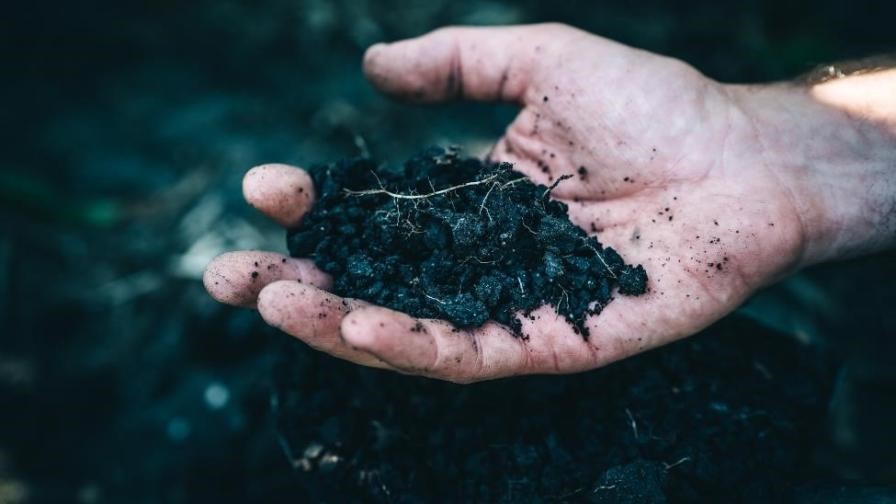This will be the last year that Norm Welker and his family harvests corn. But Welker will still be...
RABO Carbon Bank Launches First U.S. Pilot with Farmers

A group of farmers in three states have completed the initial benchmarking phase of Rabo Carbon Bank's first carbon sequestration and soil health pilot program in North America. Participating farmers will receive compensation for implementing regenerative agricultural practices that enrich their fields' soils while capturing carbon from the air. Rabo AgriFinance, a Rabobank subsidiary that serves leading U.S. farmers and ranchers, is facilitating the pilot program as part of the global Rabo Carbon Bank initiative.
"Feeding the world more sustainably is about continuous improvement. Every farm has a unique sustainability journey that has defined their success as a contributor to the food supply chain thus far," says Cristian Barcan, Sustainability Officer for Rabo AgriFinance and regional Rabo Carbon Bank officer. "We're helping our clients monetize a natural feature of their farms, the plants' ability to capture carbon equivalents from the air, while improving their fields with healthy, nutrient-dense, biologically-enhanced, carbon-rich soils. The expected result is improved yield with lower costs and lower environmental impact."
Rabo AgriFinance and Continuum Ag - a national leader in soil health-oriented agronomic advice and carbon sequestration baseline measurements - work with every individual farm business participating in the Rabo Carbon Bank pilot. Together, they identify the tailored practices that will lead to better soil health and carbon sequestration for each operation.
Based on Continuum Ag's agronomic recommendations, each farm commits to implement a combination of regenerative agricultural practices to increase the carbon content of their soils. Practices may include:
• Reduced tillage or no-till
• A variety of cover crop plantings
• Planting cash crops "green" into living cover crops
• More robust crop rotations
• Precision agriculture planting, applications of fertilizer and crop protection products, and/or irrigation
• A transition to natural fertilizer
Participants will continue to receive compensation based on the amount of carbon sequestered, measured and monitored over time using Continuum Ag's soil carbon testing and analysis technology.
"We will know the impact of our practices on carbon in the soil. No one else in the marketplace I've talked to is doing it that way and measuring," says John C. Barnes of Barnes Farming Corporation, a pilot participant. "Some of the practices we're already doing, but our management team members are going to have opportunities to be exposed to some new ideas, some cutting-edge practices, that maybe would not have been economical on their own but with carbon payments become feasible."
The initial stage of this Rabo Carbon Bank pilot is focused on learning which practices reap the best soil health and carbon capture results in a variety of conditions and crops. Pilot participants grow a multitude of crops in a number of regions.
"As a farmer-led company, we are ecstatic to be a partner of the Rabo Carbon Bank. Rabo's long-term vision and value proposition aligns with that of participating farmers and Continuum Ag," says Mitchell Hora, Founder and CEO of Continuum Ag. "We all seek more sustainably produced food, but these efforts will fail if the family farm isn't also economically sustainable."
Launched in early 2021 by the global Rabobank Group, the Rabo Carbon Bank aims to transform vital sustainability efforts throughout the food supply chain into commercially viable projects. The Rabo Carbon Bank complements other sustainability-minded efforts that Rabo AgriFinance clients can currently access, including clean energy financing for on-farm solar and methane digester construction projects.
To learn more about Rabo AgriFinance and its comprehensive suite of financial solutions, go to www.RaboAg.com.
EDITOR’S TAKE:
Carbon sequestration occurs naturally on the farm. Plants capture the carbon and put it in the soil, thus, sequestering it and making the soil healthier in the process. The partnership between Rabo and Continuum Ag with the farmers will provide valuable data on how to enhance the process to optimize the carbon capture process. The other key aspect of this collaboration is measurement. Measuring how much carbon is captured is central to the concept of paying farmers for how much carbon is ultimately captured. Once all that is in place the idea is to create carbon exchanges where carbon credits can be traded to offset some industries that have continuing carbon emissions. All the while farmers, and anyone else who captures carbon and can prove it, will garner payments for their efforts. Carbon credits could become a very significant source of supplemental income on farms of the future. And, as we all know, a stable source of income on top of what farmers/ranchers earn from their crops and livestock will only boost their ability to purchase trucks!







